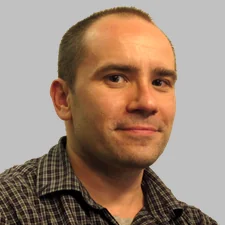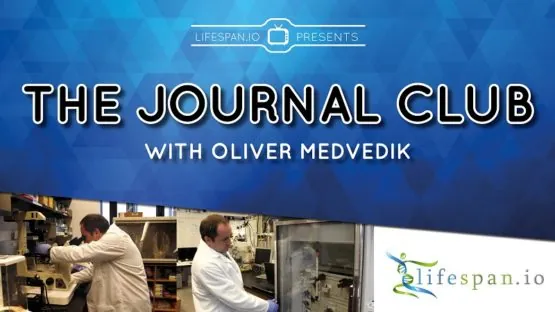We have been talking about a number of new studies in past Journal Clubs, so we thought it was time to get into some aging theory. We chose to cover one of the most cited and highly regarded damage theories of aging in this edition of the club.
In this edition of Journal Club, we continued discussing the Hallmarks of Aging, one of the most popular aging theories and based on a damage repair based approach to the damage aging causes.
López-Otín, C., Blasco, M. A., Partridge, L., Serrano, M., & Kroemer, G. (2013). The hallmarks of aging. Cell, 153(6), 1194-1217.
Thanks to our guests Dr. Laura Weston, biologist Sven Bulterijs and Lifespan Heros Joel Peterson and Bill Gelpi for joining us for the show.

Oliver Medvedik
Oliver Medvedik, Co-founder of
Genspace citizen science laboratory in Brooklyn NY, earned his Ph.D. at Harvard Medical School in the Biomedical and Biological Sciences program. As part of his doctoral work he has used single-celled budding yeast as a model system to map the genetic pathways that underlie the processes of aging in more complex organisms, such as humans.
Prior to arriving in Boston for his doctoral studies, he has lived most of his life in New York City. He obtained his bachelor’s degree in biology from Hunter College, City University of New York. Since graduating from Harvard, he has worked as a biotechnology consultant, taught molecular biology to numerous undergraduates at Harvard University and mentored two of Harvard’s teams for the international genetically engineered machines competition (IGEM) held annually at M.I.T.
Oliver is also the Director of
The Maurice Kanbar Center for Biomedical Engineering at the Cooper Union, New York City. The Maurice Kanbar Center for Biomedical Engineering is open to all Cooper Union faculty and students working on bioengineering projects requiring equipment and space for tissue culture, genetic engineering, biomechanics, and related research. Faculty that is currently using the facility are pursuing groundbreaking biomedical research in such fields as biomedical devices, tissue engineering, obstructive sleep apnea biomechanics also collaborating with several major New York City-based hospitals. The Kanbar Center continues to provide space for undergraduate teams participating in the international genetically engineered competition (iGEM) during the summer, as well as space for courses that offer a biological laboratory component.




